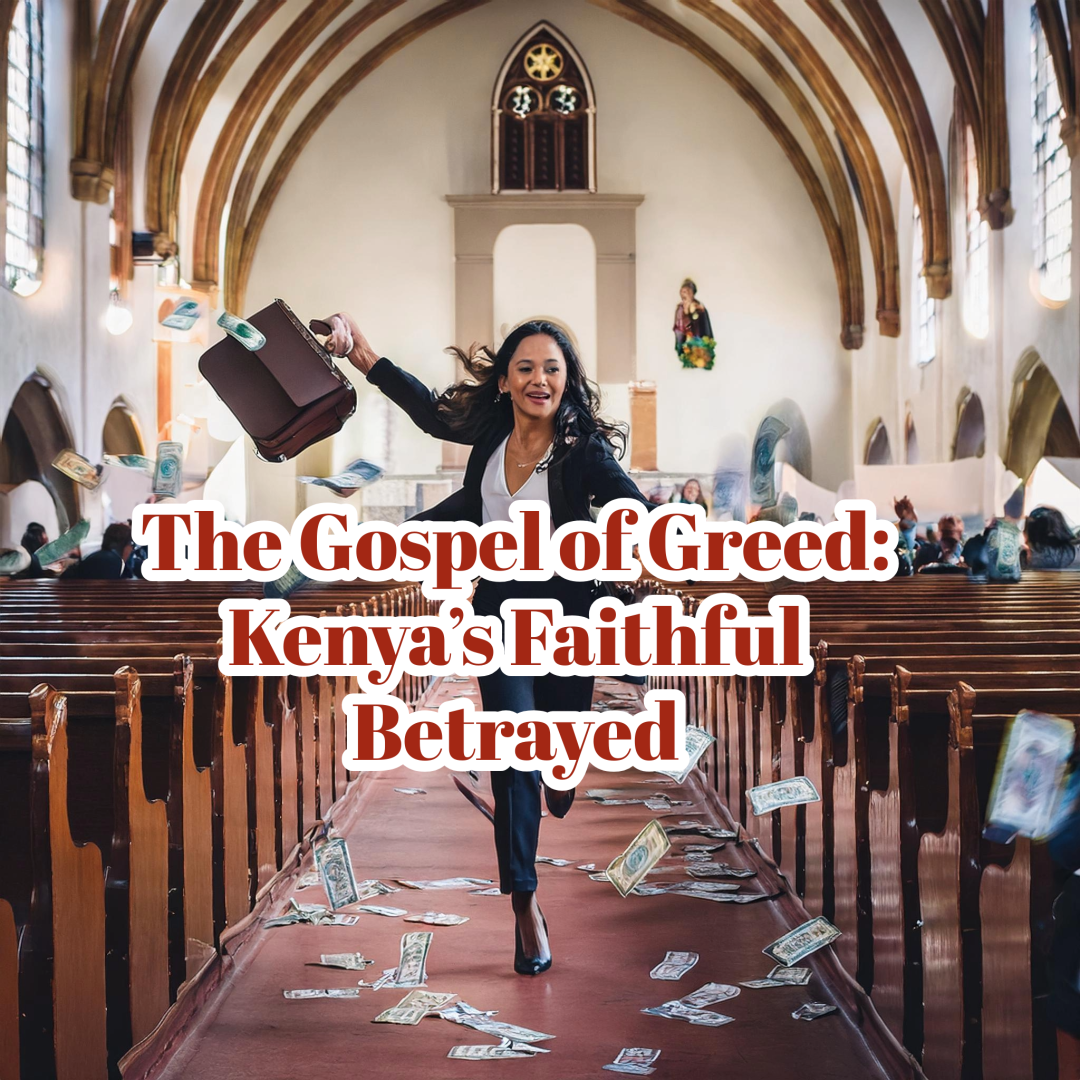Praise, Worship, and Ponzi
First up is a charismatic church leader who could sell ice to an Eskimo—and make them believe it was a miracle. He wasn’t just preaching about spiritual salvation—he was promising financial salvation too.
Through a shaky Forex scheme, De La Vie Consult, he convinced his church members that they could earn a whopping 30% return on their investments every month. It sounded like a blessing straight from heaven, and for a brief moment, it was. The early birds did see some returns, and word spread like wildfire. But then, the well ran dry.
This preacher had pitched his investment as the golden ticket to financial security for their families. Some people were so convinced they took out loans or even sold their property, all in the hope of cashing in on those sweet, sweet returns.
But when the payouts stopped, so did the dream. Instead of owning up, Silas sent out desperate emails and messages, claiming the church was facing “challenges” and promising that payments would resume soon. To top it off, he had the nerve to call his congregation ungrateful, insisting that De La Vie had been their saving grace.
The City Pastor’s Ksh.600M ($4.6M) Job Scam: Faith vs. Employment
Now, if you thought the first case was bad, wait until you hear about the “City Pastor” who managed to swindle Ksh.600 million from 4,000 people. His pitch wasn’t about multiplying your money but landing you a job—something every Kenyan knows is worth its weight in gold.
This pastor, who clearly missed the memo about “Thou shalt not steal,” convinced his followers that he had connections in high places. For a small fee (or rather, a not-so-small one), he could secure them well-paying jobs abroad. In a country where employment opportunities are about as scarce as a snowstorm in Mombasa, this was a promise too good to pass up.
So, the faithful paid up, only to find themselves in a familiar situation—duped, desperate, and jobless. The pastor? Nowhere to be found. Turns out, the only job he was good at was disappearing acts.
Source: Nation.africa
The Eldoret Investor: How to Vanish with a Billion Shillings and a Prayer
If scamming were an Olympic sport, the “Eldoret Investor” would be taking home the gold. Eldoret, the newest city in Kenya, is renowned as the home of champions but this time, it has been the home of cons. This so-called investor didn’t just pull off a run-of-the-mill con—he did it with style, using churches as his stage and bishops as his unwitting co-stars.
The suspect infiltrated churches across Eldoret, convincing bishops and pastors to vouch for his investment firm, Springmak. The promise? An eye-popping 18% monthly return that sounded too good to pass up—especially when it came with a stamp of approval from the pulpit. Churchgoers, spurred on by their leaders, rushed to invest. Some even took out loans, lured by the dream of easy riches. After all, who wouldn’t trust an opportunity blessed by their pastor?
But when the time came to collect, the Eldoret Investor pulled a classic disappearing act. The promised payouts? Gone. The investor? Nowhere to be found. Instead of rolling in riches, nearly 300 hopefuls were left clutching nothing but their empty wallets and shattered dreams.
Then, just when you thought the story couldn’t get any crazier, the man himself reappeared—with the mother of all excuses. “I’ve been in the hospital for months,” he claimed, “and if I show up now, I’ll either be arrested or killed!” Apparently, pulling off a billion-shilling heist takes a toll on your health.
For those left in his wake, the betrayal cuts deep. The church, a place of trust and community, became the backdrop for one of the biggest cons in town. And the Eldoret Investor? He didn’t just take the money—he took their faith in everything they believed was good and true. Now, instead of counting their blessings, they’re counting their losses and wondering how they got played so hard.
Faith on the Rocks: Picking Up the Pieces
So, what happens when the very place you turn to for hope and guidance becomes the setting for your downfall? For many Kenyans, these scams have shaken their faith—not just in the church, but in humanity. The sanctity of the church has been tainted, and the road to recovery is long and painful.
But here’s the kicker: these aren’t just stories of loss. They’re tales of caution, reminders that trust is a precious thing, and even in places as sacred as a church, it can be exploited. The church must now do some serious soul-searching to regain its role as a true protector of its flock.
At the end of the day, the curious case of the church and scams in Kenya is a story that could fill a whole chapter in a modern-day Bible—one full of lessons about greed, gullibility, and the importance of keeping your wits about you. Because, as it turns out, not every person who quotes scripture has your best interests at heart. Sometimes, they’re just looking to make a quick buck, and if you’re not careful, you might find yourself on the wrong end of a “blessing” that’s anything but divine.








Got a Questions?
Find us on Socials or Contact us and we’ll get back to you as soon as possible.